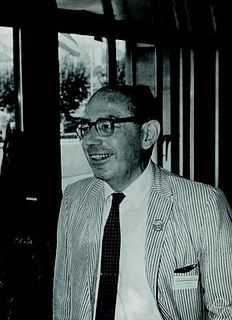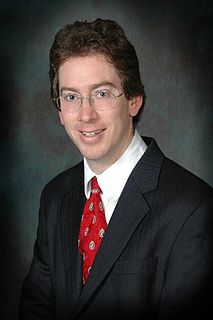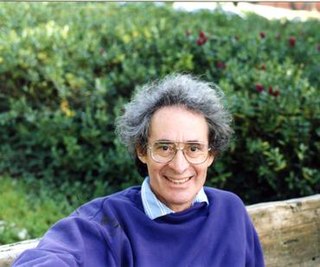A Quote by Abraham Robinson
As far as I know, only a small minority of mathematicians, even of those with Platonist views, accept the idea that there may be mathematical facts which are true but unknowable.
Related Quotes
The extraordinary fact is that the first idea I had which motivated me, that worked, is conjecture, a mathematical idea which may or may not be true. And that idea is still unproven. It is the foundation, what started me and what everybody failed to **** prove has so far defeated the greatest efforts by experts to be proven.
The Reader may here observe the Force of Numbers, which can be successfully applied, even to those things, which one would imagine are subject to no Rules. There are very few things which we know, which are not capable of being reduc'd to a Mathematical Reasoning, and when they cannot, it's a sign our Knowledge of them is very small and confus'd; and where a mathematical reasoning can be had, it's as great folly to make use of any other, as to grope for a thing in the dark when you have a Candle standing by you.
I imagine that whenever the mind perceives a mathematical idea, it makes contact with Plato's world of mathematical concepts... When mathematicians communicate, this is made possible by each one having a direct route to truth, the consciousness of each being in a position to perceive mathematical truths directly, through the process of 'seeing'.
Facts are certainly the solid and true foundation of all sectors of nature study ... Reasoning must never find itself contradicting definite facts; but reasoning must allow us to distinguish, among facts that have been reported, those that we can fully believe, those that are questionable, and those that are false. It will not allow us to lend faith to those that are directly contrary to others whose certainty is known to us; it will not allow us to accept as true those that fly in the face of unquestionable principles.
There is a small minority of well-educated people with relatively sensible views on economics, and an extremely tiny minority of economists with highly sensible views. Then there's everybody else. ... To win, a politician needs to please the median voter. It makes little difference if a few thousand economists think you a fool.
Whenever I want to represent or depict the official version, I will refer to them as 'mathematicians' or 'mathematical physicists' or idiots or something like that. There are no physicists in mainstream 'Physics.' From Newton to Einstein to Hawking, they are all just mathematicians as far as Science and Physics are concerned.
We ought not to believe those who today, adopting a philosophical air and with a tone of superiority, prophesy the decline of culter and are content with the unknowable in a self-satisfied way. For us there is no unknowable, and in my opinion there is also non whatsoever for the natural sciences. In place of this foolish unknowable, let our watchword on the contrary be: we must know - we shall know.
It surely can be no offence to state, that the progress of science has led to new views, and that the consequences that can be deduced from the knowledge of a hundred facts may be very different from those deducible from five. It is also possible that the facts first known may be the exceptions to a rule and not the rule itself, and generalisations from these first-known facts, though useful at the time, may be highly mischievous, and impede the progress of the science if retained when it has made some advance.
[The scientist] believes passionately in facts, in measured facts. He believes there are no bad facts, that all facts are good facts, though they may be facts about bad things, and his intellectual satisfaction can come only from the acquisition of accurately known facts, from their organization into a body of knowledge, in which the inter-relationship of the measured facts is the dominant consideration.



































